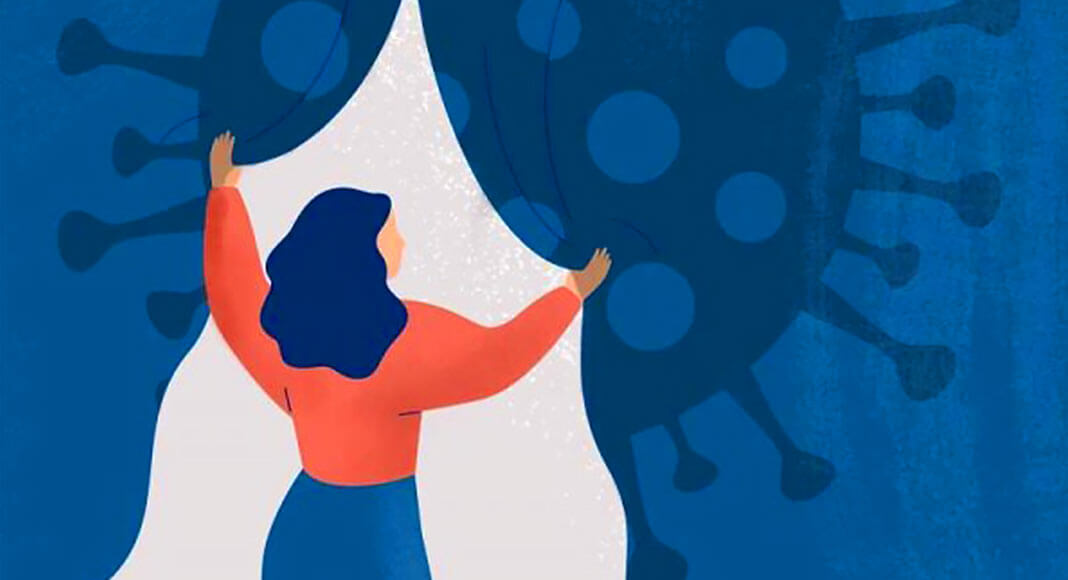
Mega Doctor News
by University of Delaware
Newswise — As the restrictions imposed by the COVID-19 pandemic have eased, and in-person school and social activities resume, renewed interaction with friends and classmates is widely seen as an emotional boost for most teenagers, a group that reported increased anxiety and depression during the period of isolation.
But it may be a different story for those teens whose social interactions before the pandemic were especially problematic; perhaps they were bullied or often got into fights at school. Are they happy to be back in the classroom?
“We think that teens are universally happy to be back to social interaction, because they are very focused on their peers, more so than younger children or adults,” said Julie Hubbard, professor of psychological and brain sciences at the University of Delaware and an author of a paper recently published in the journal Research on Child and Adolescent Psychopathology. “We think that of course teenagers want to be around their peers, but it’s really not that simple.”
Hubbard and her research team have been following a group of young people for many years, beginning when they were in fourth or fifth grade and continuing to their current time as high school students. Her lab focuses on children’s and adolescents’ aggression, which research has shown is often linked with depression, and on teens who have challenging peer interactions, either as victims or aggressors.
By chance, her team had just completed a large laboratory-based data collection effort with teens in February 2020, just before the pandemic upended school and social activities. The researchers, Hubbard said, decided to use that data to look into the effects of isolation on those with difficult peer relationships. A group of about 100 of the teens completed additional questionnaires assessing their depressive and anxious symptoms several months later, in the early months of the pandemic.
The researchers found that, while teens in general reported increased depression and anxiety from pre- to mid-pandemic, adolescents who had problematic peer relationships before the pandemic did not experience those increases.
“The COVID studies [conducted by other researchers] suggest that, for most adolescents, reductions in face-to-face interactions with peers during the pandemic likely have contributed to feelings of loneliness and isolation,” Hubbard and her co-authors wrote in their paper. “In contrast, the picture might look quite different for adolescents who experienced particularly challenging peer relations” before the pandemic.
“Of course, the pandemic was difficult for all teenagers in many ways, just as it was for everyone,” Hubbard said. “But it’s possible that some teenagers with particularly difficult peer relationships prior to the pandemic actually experienced improved quality of life during the pandemic.”
These findings should remind parents and teachers how stressful interacting with peers can be for some teens, she said. From her viewpoint as a clinician, in addition to being a researcher, she urged schools and parents to keep an especially close eye on how young people who struggled with peer relationships before the pandemic are doing as they return to in-person activities.
Hubbard also expressed concern for the effects of the pandemic isolation on younger children, who lost out on the kind of socialization that occurs in in-person school at a critical developmental time in their lives. She urged parents and schools to think about that loss and to give young children time to play and adapt to renewed social interactions.
From solving problems with other children when they disagree, to learning how to share, to figuring out another child’s facial expression, “There’s a lot you learn in face-to-face kindergarten that you just can’t learn over Zoom,” Hubbard said.
About the research
“Pre-Pandemic Peer Relations Predict Adolescents’ Internalizing Response to Covid-19” was published Oct. 18 in the journal Research on Child and Adolescent Psychopathology.
The first author is doctoral student Fanny Mlawer, with co-authors Christina C. Moore, who earned her doctoral degree in May; Hubbard; and doctoral student Zachary M. Meehan.
In the paper, the researchers suggest several areas that could be explored in the future, including similar assessments at a later stage of the pandemic. The isolation caused by the pandemic had a fairly clear starting point as schools and businesses shut down in March 2020, but pinpointing the end of the pandemic will be more difficult, Hubbard said.
Still, the research team noted that these kinds of studies can do more than examine how adolescents responded to COVID. In addition, they wrote, the research can provide insights into the emotions of teens who struggle with their peer interactions more generally.








